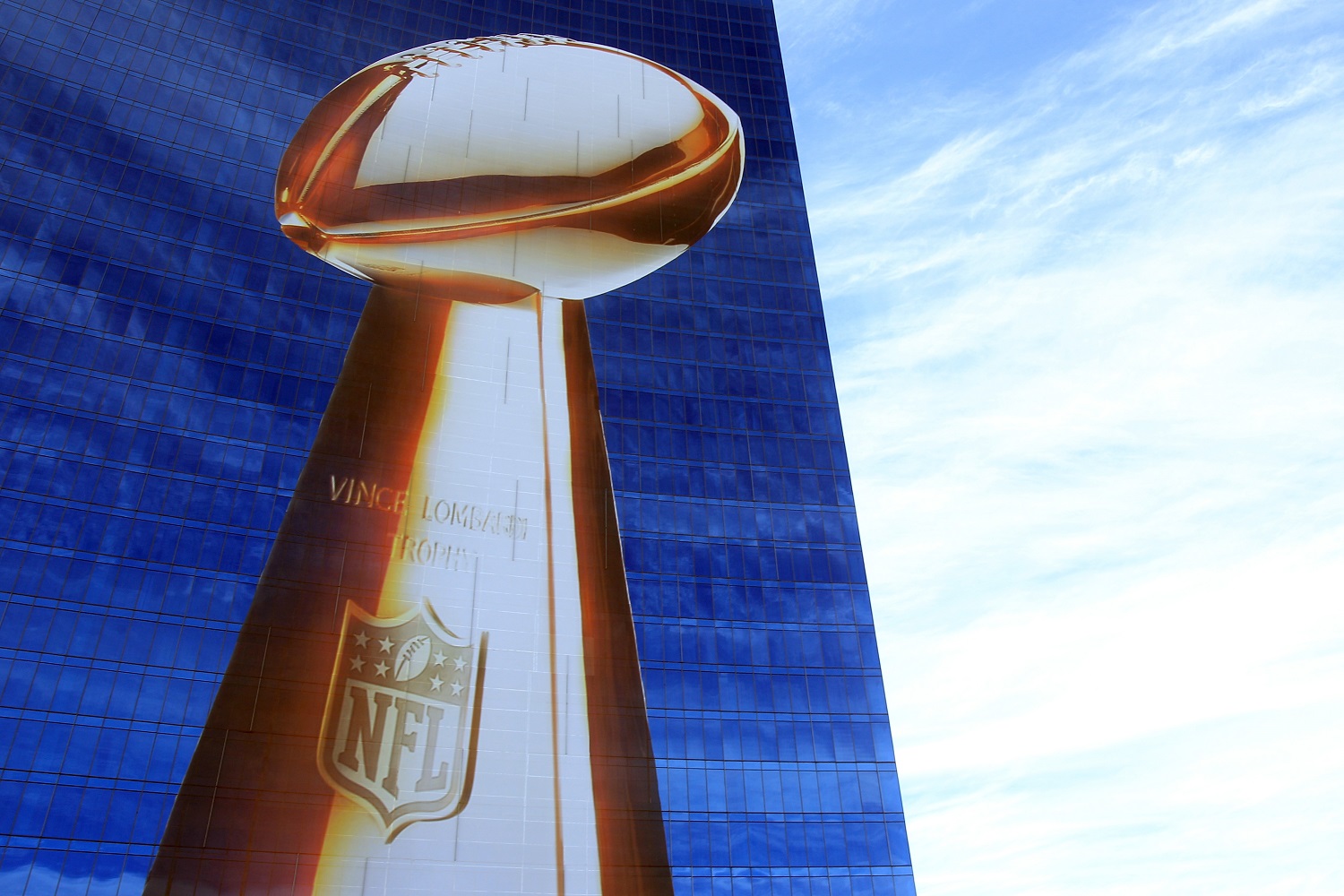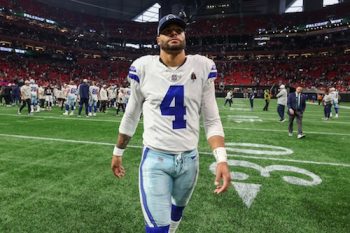NFL
How Much Would You Pay to Watch the Super Bowl on TV?

There was no going back for Major League Baseball once commissioner Bowie Kuhn approved night World Series games in 1971. He made money for a network and for baseball owners, but it was no better than a wash for fans. For every person on the West Coast who could now watch after work, another on the East Coast went to bed before the game ended. The change was seismic, but not even close to what a veteran media executive thinks is inevitable for the Super Bowl.
Pay-per-view isn’t a huge thing yet in pro sports
Movies are a staple of pay-per-view, and the COVID-19 pandemic increased sales while movie theaters were shuttered. In the sports world, pay-per-view used to be associated almost exclusively with boxing. Pro wrestling wasn’t far behind, and the UFC has become a big driver of sales more recently.
To this point, the major sports leagues have steered clear of pay-per-view offerings of their biggest games. With networks paying big money, the NFL, NBA, and MLB offer regular-season games over the air and on cable, complemented by local deals for the baseball and basketball leagues.
The leagues’ foray into PPV has been through so-called season-tickets packages. For an annual fee, subscribers get access to most of the out-of-market games so that a native New Yorker now living in Dallas can watch the Yankees or Mets throughout the season.
John Skipper expects the Super Bowl to become a pay-per-view event
The pro leagues have drawn the pay-per-view line at playoffs contests, primarily for financial reasons. The postseason is where their network partners reap huge profits that make the lucrative broadcasting contracts possible.
NFL teams took in nearly $10 billion in national broadcast money last season, and the overwhelming majority came from NBC, Fox, and ABC/ESPN. Those networks charged $1 million or more per minute of commercials before, during, and after games, turning a modest profit overall.
The real killing comes during the playoffs, culminating in the Super Bowl. NBC is charging up to $6 million per 30-second commercial for Super Bowl 56. Rates for commercials before and after the game will be lower, but Fox and NBC have been making big money for years.
That helps explain why moving the Super Bowl to PPV didn’t sound plausible … until now. John Skipper, a media executive who ran ESPN, thinks we’re not far from seeing the country’s biggest annual viewing event move to PPV.
Skipper envisions a day when networks move large pieces of their sports programming to their streaming services. ESPN (with ESPN+) and NBC (with Peacock) are ahead of the curve.
“That’s how they’re going to replace the money someday,” Skipper said on the Le Batard and Friends podcast.
How much would you pay to watch the Super Bowl on TV?
Skipper, who ran ESPN from 2012-17 and then helped build DAZN into a sports programming competitor, projects declining TV ratings because of fractured audiences. There are too many viewing options for too few people, and there will be tipping points along the way that see the networks having to lower the rates they charge advertisers.
To compensate, networks could move events to their streaming services, which charge monthly fees. NASCAR fans have already seen that shot fired across their bow. It’s not a huge leap in logic to move the Super Bowl to PPV.
“There’ not going to be enough money in advertising,” Skipper said. “If people are willing to pay big money to see Floyd Mayweather fight a Paul brother, I would think the money generated by a pay-per-view” could tip the scales.
So, how much would it cost to watch a future Super Bowl on PPV?
Four Mayweather fights lead the list of the highest-grossing PPV sporting events ever. The biggest was his 2015 fight with Manny Pacquiao, which attracted 4.6 million buys at an average price of $89.
The math here is quick and dirty, but here we go:
- Super Bowl 55 was the first NFL title game in more than a decade that did not attract 100 million viewers, though it came close, according to Sports Media Watch.
- Hardly anyone watches alone or with just one or two other people. Even during a pandemic, Super Bowl watch parties remain a thing, with 12 or 15 people (or more) gathering in homes for the game. The crowds in bars and restaurants are larger.
- If a dozen people gather for a watch party and kick in $15 to also help cover the cost of food and beverages, could the NFL or one of the networks take the Super Bowl to PPV at a cost of $99.95?
A total of 7.5 million PPV buys is a guess, but a conservative one. At $100 per order, that’s $750 million. With the cable companies and other distributors requiring a cut of the revenue, is there enough left over to make it a worthwhile gambit?
If that’s not enough money, then how much is? If you believe Skipper’s analysis, someone will determine the answer sooner rather than later.
Like Sportscasting on Facebook. Follow us on Twitter @sportscasting19.
RELATED: The NFL Is Mandating Digital Tickets, Stripping Treasured Souvenirs From Its Fans











